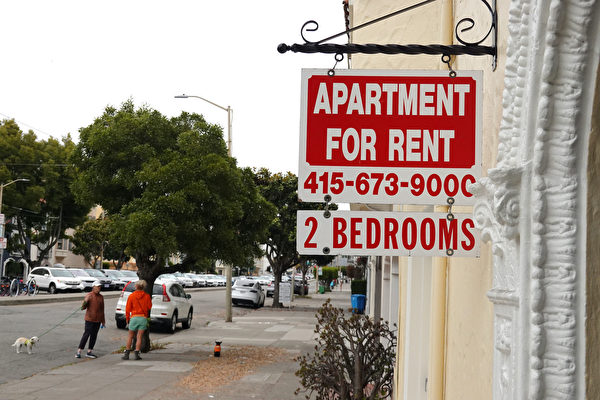Starting from July 1st, many laws related to people’s livelihood will come into effect in California, including a new regulation between landlords and tenants.
The upcoming AB12 bill, drafted by Democratic State Assemblyman Matt Haney, was signed into law by Governor Gavin Newsom last November. The law stipulates that landlords cannot charge tenants more than one month’s rent as a security deposit, regardless of whether the rental property is furnished or not.
According to the analysis of the legislature on the new law, landlords who own one or two properties with a total of no more than four rental units can still collect a two-month rent deposit, except when renting to veterans.
Haney, chairman of the Assembly Renters Caucus, stated in April, “When renters cannot afford the deposit, they often have to borrow from predatory lenders, accumulate debt, or simply cannot rent.”
Using San Francisco as an example, if the average monthly rent for a two-bedroom apartment is $5,000, this means that the move-in cost would be $15,000.
The California Nurses Association and the UC Student Association stated in an analysis report that high security deposits prevent some people from renting homes and may force individuals into homelessness or unfavorable situations. Supporters of the new law argue that tenants should not have to borrow money solely to pay for the cost of moving in.
However, opponents argue that this may put landlords under increased financial pressure. Furthermore, without an adequate security deposit as a buffer, landlords may become more selective in choosing tenants, including requiring higher credit scores from renters.
Chip Ahlswede, Vice President of External Affairs for the Apartment Association of Orange County, warned during the advancement of the bill last year that this approach would only compel landlords to choose tenants with better reputations, making it harder for lower-income individuals to secure housing.
Daniel Yukelson, CEO and Executive Director of the Apartment Association of Greater Los Angeles, also believes that reducing deposits is not a solution to creating more affordable housing. He stated, “In fact, the impact of the new law will be completely contrary to what the legislature hopes for. Landlords may not be able to balance the risks when these tenants do not meet the financial standards, so they will simply be denied housing.”
Regarding this new law, Chinese landlord Peter in Los Angeles believes that for the majority of law-abiding landlords, the deposit serves as a psychological safeguard. “After all, there are too many people not paying rent nowadays, and the law protects these tenants, so landlords have to bear the risk and pressure of consecutive non-payment of rent.”
He added, “California’s rental laws have always focused on protecting the rights of tenants, which will only make it increasingly difficult for landlords.”
Before the enforcement of the new law, the existing law implemented in California since 1977 stated that landlords could charge up to two months’ rent (one month as a deposit and the first month’s rent) for unfurnished properties and up to three months’ rent for furnished properties when tenants move in.
Security deposits are primarily used for repairs due to non-routine damage caused by tenants, as well as compensating landlords when tenants default on rent.
Veteran California commentator John Seiler has expressed his view in a column that targeting landlords will only worsen the housing crisis. By citing examples of state and city government rent control in California, he mentioned that rent control forces landlords to convert rental units into housing or exit the rental market, leading to a decrease in the number of rental units available and driving up rental prices (often through the black market).

